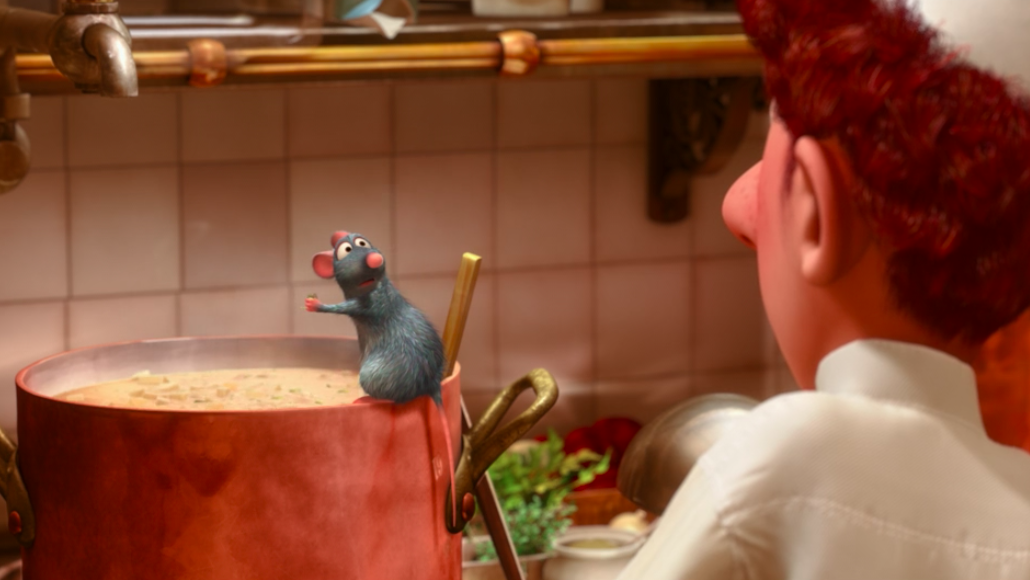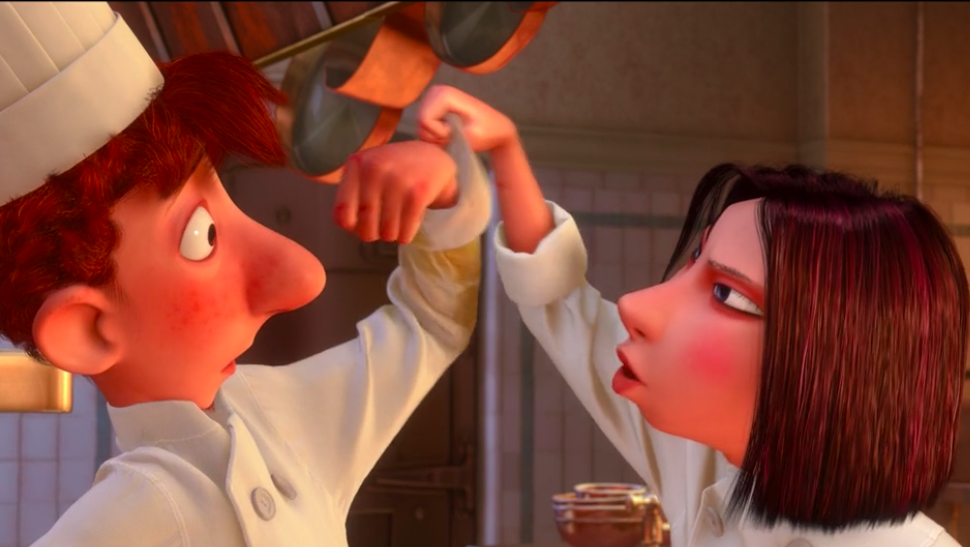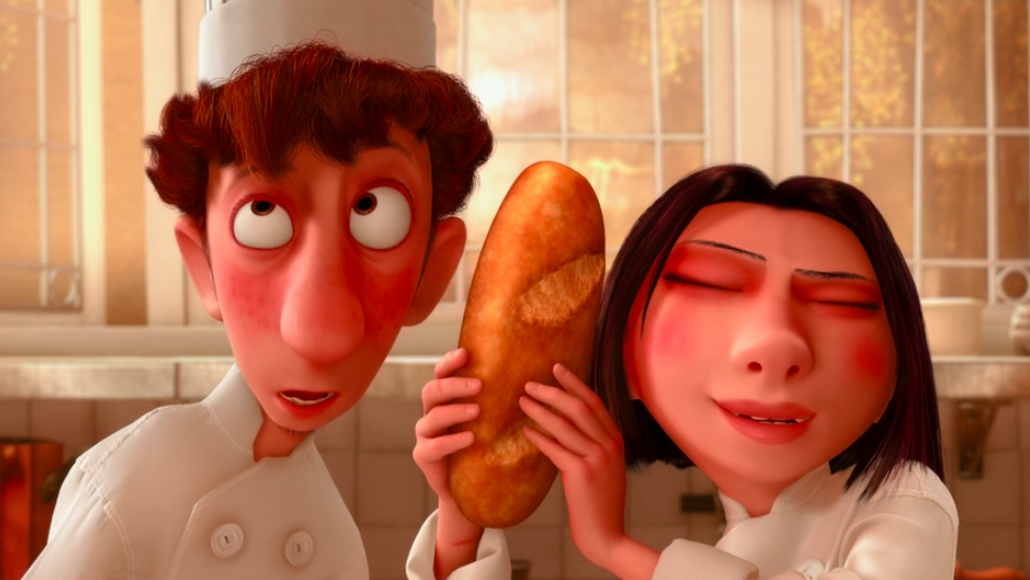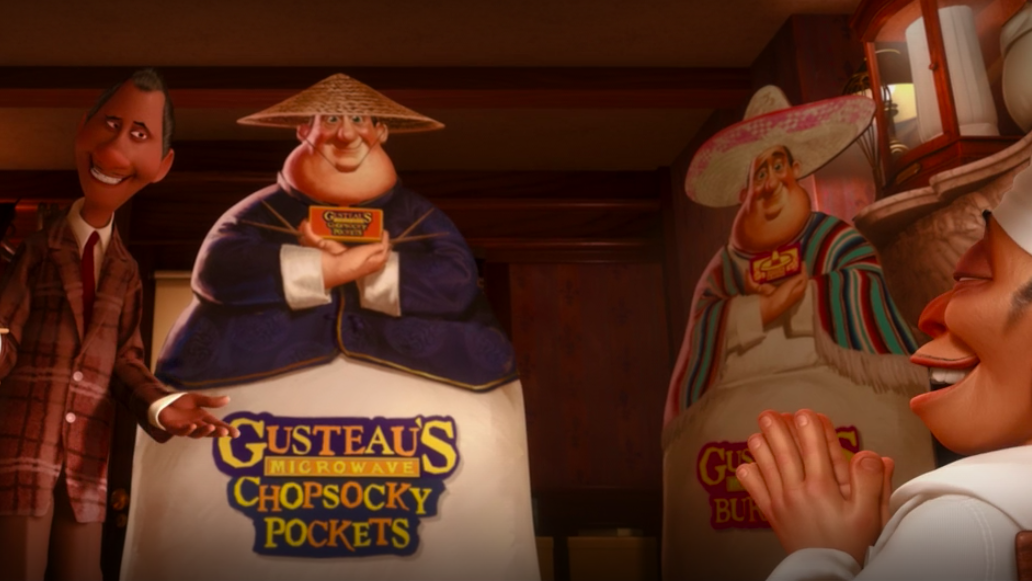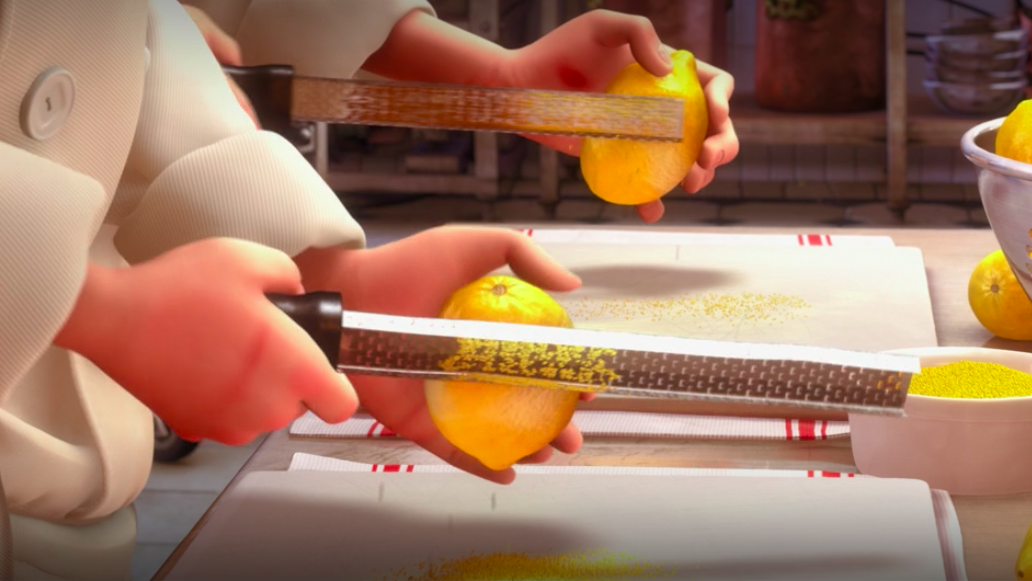15 Cooking Lessons From Ratatouille, In Honor Of Its 15th Anniversary
Who knew a movie about a rat could make such an impact?
Walt Disney's Ratatouille was released in June of 2007, making this year its 15th anniversary. In the years since its release, this instant classic has not only delighted adults and children alike, but taught us some valuable lessons to use in our own kitchens. In honor of the film's skilled rat cook, its weird marionette man, its ghostly French chef, and its many other memorable characters who love food above all else, here are 15 cooking lessons we learned from this animated masterpiece.
Keep your elbows in
Colette (Jeanane Garofalo) is one of the many seasoned chefs at Gusteau's Restaurant, and with that experience comes a plethora of knowledge she bestows upon both the hapless chef Linguini and the audience itself—you will see her tidbits of wisdom quite a few times on this list. Her first command is that all chefs must keep their elbows in, not just to keep sleeves clean but to minimize cuts and burns while cooking. Two signs of a good chef, she says, are a dirty apron and clean sleeves.
Keep your work station clean
Sure, some of these tips apply more to to a professional kitchen than to someone cooking at home, but it's good intel for all of us. For example, Colette says to always keep your station clean to prevent orders from piling up and other mishaps. But at home, keeping things tidy as you cook is just as good an idea, as it will spare you the chore of cleaning everything later, and will make your approach to cooking a meal altogether more organized.
Keep the menu fresh
Whether you're cooking at home or at a restaurant, a beloved dish might not stay beloved for long—eventually, your palate will be begging for something new and unexpected. Don't be afraid to try experimenting in the kitchen so as to serve up new flavors and textures. You might discover a new favorite.
Choose the best bread
This is some real insider information right here. Choosing the best baguette without tasting it might seem difficult, but Colette zeros in on one quality that will tell any chef what they need to know: Focus on the sound of the crust, listening for a "symphony of crackle" when you squeeze it. "Only great breads sound this way," she says. We can't argue with that.
Wash your paws
In Remy the rat's own words, cleanliness is close to godliness. Yes, the rat who walks upright rather than sully his hands by walking on all fours taught us that good hygiene is of the utmost importance in the kitchen. Do not forget to always wash up before you handle food. (Unlike the rats, however, you should wash up at the sink rather than inside the dishwasher.)
Lead with a love of food
Against all odds, Remy makes his way into an upscale French kitchen as a stowaway sous chef. His love of food is what landed him there, and it drives all the events of the film. Because of this respect and reverence for quality cuisine, his talents are able to shine through in every dish he makes. Love your subject and everything else will follow.
Pairing foods elevates each flavor
Every bite of food has its own distinct qualities as it hits your palate, and being able to pinpoint those qualities is key to building a delicious, nuanced dish. When you understand what each of your ingredients brings to the table, you can start pairing them with others and layering flavors to create a unique culinary experience. Ratatouille illustrates Remy's multisensory flavor experiences through beautiful, abstract visuals, reminding us that the right food pairings can be art.
The smell test can tell you a lot
As a rat with a highly developed sense of smell, Remy's ability to sniff out poison is crucial to his life of eating scraps—but in the case of us humans, it's just as helpful. In addition to detecting toxins, Remy's capable nose takes in the aromas of food as he cooks, and that's important to the end result. Our sense of smell is strongly linked to our sense of taste, so don't forget to make full use of both in the kitchen.
Don’t write off “peasant food”
Just because a dish is cheap to make or consists of simple ingredients does not make it less worthy of respect or praise. Ratatouille itself is nearly written off as a mere "peasant dish" in the film, yet it's ultimately the meal that stuns Anton Ego, Paris' most cynical dining critic. We should all remember that an amazing meal doesn't need to break the bank to be delicious.
Appreciate every bite
"Don't just hoark it down!" Remy admonishes his brother Emile as the latter tries to gobble up a gourmet meal in one bite. Sometimes we're all Emile: so hungry we just scarf down our food hoping to fill our bellies as quickly as possible. But it's a good goal to be more like Remy from time to time, appreciating each bite and savoring the flavors of it all. (However, don't emulate Remy's tendency to yell at his family members about what and how they eat.)
Do it for love of the game (not the money)
This is a no-brainer: When you're only in it for the money, the quality will suffer. Skinner, head chef at Gusteau's Restaurant in Paris, is driven by profit and licenses the likeness of the late Chef Auguste Gusteau to adorn a number of garish, downright offensive frozen supermarket meals. Naturally, this isn't what Gusteau would have wanted for his empire, even if it results in short-term profits for the restaurant. As much as possible, put your heart and soul into what you cook up, and the well-deserved accolades will follow. Greedy, opportunistic cash grabs have no place in the restaurant industry.
Don’t leave stock pots unattended
Listen, we're not saying a highly-skilled rat chef is going to come by and throw spices into your pot, but we're also not not saying that. In general, it's more so a safety risk to leave stock pots unattended as they cook over an open flame. Remy might have good intentions, and the resulting soup might be delicious, but the lesson here is to stay alert and keep an eye on your cooking.
Every second counts
"You think cooking is a cute job, eh?" Colette asks Linguini incredulously. "Like Mommy in the kitchen? Well, Mommy never had to face the dinner rush when the orders come flooding in and every dish is different and none are simple and all of them have different cooking times but must arrive on the customer's table at exactly the same time hot and perfect. Every second counts, and you CANNOT BE MOMMY!" Colette is right, whether you're a novice or a professional: timing is crucial in the act of cooking. Multitasking is usually required so that everything is served hot and fresh. Practice makes perfect.
The best meal starts with the best produce
You cannot make a truly great meal out of so-so ingredients. And although we would never endorse underhanded methods, Chef Colette makes a great point that most real industry insiders would probably agree with: to guarantee the best produce, your options are to get in good with a grower or simply grow it yourself. While the latter sounds like a lovely idea, it might be too labor-intensive if you're already running a restaurant—so, handing over the right bribe to the right person is the best way to secure picture-perfect produce.
Anyone can cook
The motto of the late Chef Gusteau is one that all of us, even the jaded dining critic Anton Ego, can take to heart: No matter where you come from or how much of a beginner you are, anyone can cook. It's the maxim upon which Ratatouille is built, and the one that keeps this film as relevant as ever, 15 years after its debut. Who doesn't feel inspired to head into the kitchen after watching this movie?
